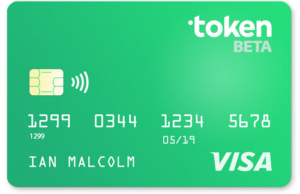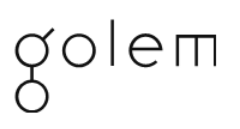
6 Notable Initial Coin Offering Campaigns and Blockchain Projects
by Fintech News Singapore May 5, 2017An ICO is an unregulated means by which a new cryptocurrency venture or project can raise funds by selling newly minted crypto coins. The practice is often used by startups to bypass the rigorous and regulated capital-raising process required by venture capitalists or banks.
In an ICO campaign, a percentage of the cryptocurrency is sold to early backers of the project in exchange for legal tender or other cryptocurrencies, but usually for bitcoins or ethers (ETH), the native cryptocurrency of the Ethereum network.
Prior to launching a campaign, a startup usually creates a plan on a whitepaper which states what the project is about, what needs the project will fulfill upon completion, how much money is needed to undertake the venture, and how long the ICO campaign will run for, amongst other key information.
During the campaign, enthusiasts and supporters can buy some of the distributed tokens. Which are similar to shares of a company sold to investors in an Initial Public Offering (IPO) transaction.
If the money raised does not meet the minimum funds required by the startups, the money is returned to the backers and the ICO is deemed unsuccessful.
To date, ICOs have offered some extraordinary returns. Today, we look at some of the most noteworthy ICO campaigns that ran recently.
Decentralized platform Waves raises US$16 million
Waves , a decentralized platform which uses custom crypto tokens to represent value, raised 29,634 BTC (US$16 million) in its ICO in July 2016 in exchange for 85,000,000 coins (WAVES).
, a decentralized platform which uses custom crypto tokens to represent value, raised 29,634 BTC (US$16 million) in its ICO in July 2016 in exchange for 85,000,000 coins (WAVES).
Waves is a crypto-platform for asset/custom token issuance, transfer, and trading on blockchain. Waves offers a full-scale platform for decentralized crowdfunding, community management and encrypted messaging.
Ethereum prediction market Gnosis raises US$12.5 million in less than 15 minutes
 In April, Gnosis, a startup building a platform for prediction markets on Ethereum, raised 250,000 ETH (worth US$12.5 million at the time) in less than 15 minutes, giving the project a US$300 million valuation.
In April, Gnosis, a startup building a platform for prediction markets on Ethereum, raised 250,000 ETH (worth US$12.5 million at the time) in less than 15 minutes, giving the project a US$300 million valuation.
Gnosis has its own native cryptocurrency called WIZ. During the ICO however, investors received a token called GNO which they can choose to lock for a fixed period of time and receive WIZ tokens in exchange.
Gnosis sold 5% of its 10 million GNO tokens to investors for US$30 each, making it the most expensive digital currency offered in an initial sale, according to co-founder Martin Koppelmann.
TokenCard raises US$12.7 million in 30 minutes
 Monolith Studio’s TokenCard closed its ICO earlier this week after exceeding its crowdsale goal in just half an hour.
Monolith Studio’s TokenCard closed its ICO earlier this week after exceeding its crowdsale goal in just half an hour.
TokenCard is a debit card usable at payment terminals around the world, including ATMs. TokenCard customers fund their own card with allowances from ERC20 compatible contract wallets.
At launch, TokenCard will allow users to fund their card with ETH and up to five other cryptocurrencies. Its underlying token, TKN, is funded by fees from the Token Card network.
Golem raises US$8.6M in less than 30 minutes
 In late-2016, Golem, the first decentralized global market for computing power, raised 820,000 ETH (more than US$8.6 million) in just 29 minutes for its Golem Network Token (GNT).
In late-2016, Golem, the first decentralized global market for computing power, raised 820,000 ETH (more than US$8.6 million) in just 29 minutes for its Golem Network Token (GNT).
Dubbed as the “Airbnb for computers,” Polish-based Golem is a peer-to-peer network that allows both application owners and individual users to rent the resources of other users’ machines, and be paid in cryptocurrency. Users are equally privileged under the network.
ChronoBank raises US$5.4M to disrupt the HR industry
 ChronoBank, a project aimed at transforming the human resources and recruitment industry, raised US$5.4 million in its ICO earlier this year.
ChronoBank, a project aimed at transforming the human resources and recruitment industry, raised US$5.4 million in its ICO earlier this year.
ChronoBank is building a blockchain-based recruitment platform that seeks to disrupt the industry through the use of time-based cryptocurrencies.
Development in the pipeline includes progress on ChronoBank’s smart contracts capabilities, hosted on Ethereum’s blockchain, as well as ChronoWallets for Waves and the NEM platform.
ChronoBank’s TIME token was recently added for trading on the Lykke exchange platform.
Humaniq Raises US$5.1M for financial inclusion project
 In April, Humaniq, a project aimed at delivering financial services to the unbanked, raised over US$5.1 million in its ICO with over 11,600 participants and an average contribution of US$430.
In April, Humaniq, a project aimed at delivering financial services to the unbanked, raised over US$5.1 million in its ICO with over 11,600 participants and an average contribution of US$430.
Humaniq aims to bring new mobile financial inclusion and education services to help the two billion unbanked people in the world who have limited or no access to the digital economy. It is working to provide a peer-to-peer platform that leverages the Ethereum blockchain and biometric technology.
Humaniq recently joined Barclays’ open innovation program Rise in London.







